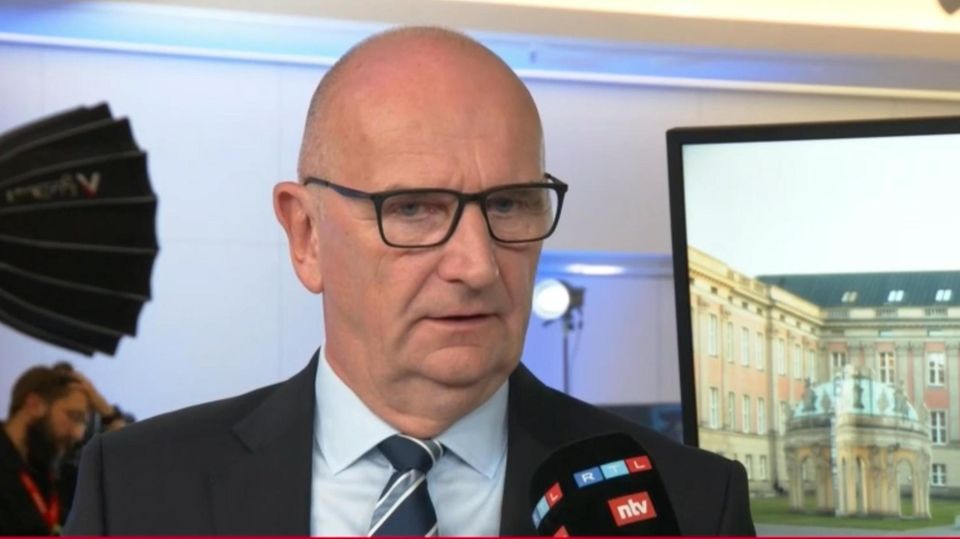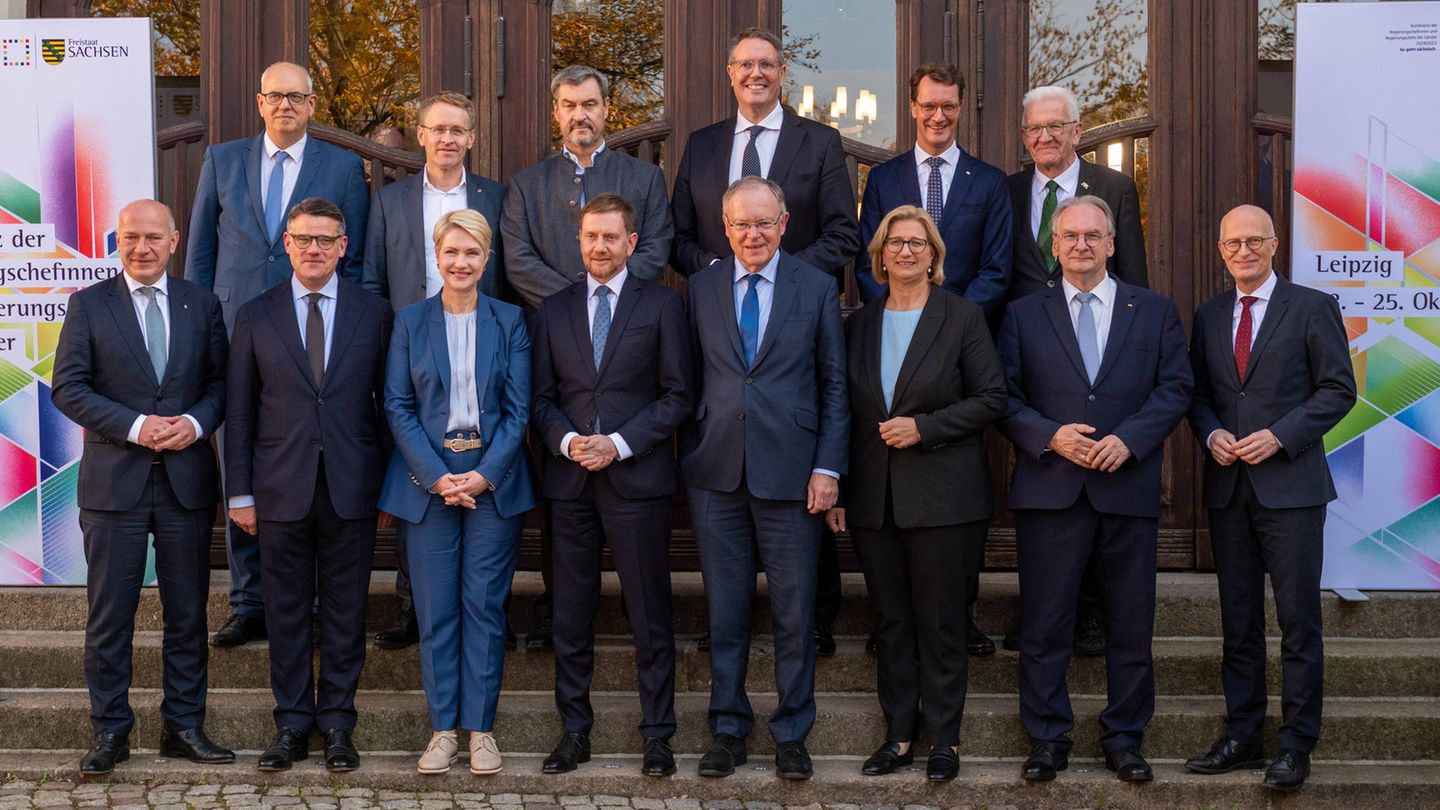Broadcasting fees, migration and the situation of the municipalities were the big topics at the Prime Minister’s Conference. The country leaders also discussed a lot of other things.
The Prime Ministers have called for further measures to better manage migration. In a resolution by the Prime Minister’s Conference (MPK) in Leipzig, they advocated, among other things, continued border controls and further deportations to Afghanistan, Syria and Turkey in asylum policy. However, the heads of government did not reach an agreement at their annual conference in Leipzig on the CDU’s demand for rejections at the border.
The heads of government had been meeting in Leipzig since Wednesday. Saxony has chaired the Prime Minister’s Conference since October 1st.
Lower Saxony’s Prime Minister Stephan Weil (SPD) spoke of a “Prime Minister’s Conference that took place in difficult times, with difficult topics and correspondingly difficult deliberations.” Progress on issues such as migration is only possible “if we continually return to a common core,” emphasized Weil.
Prime ministers make decisions on migration
One could perhaps say that the decisions on migration are not the big breakthrough. However, they are further building blocks of a course that has led to a decline in the number of asylum seekers this year, said Weil. Rejections at the border are not legally possible.
Migration 2024
Most people from these countries apply for asylum in Germany
A decision was also postponed on the sensitive issue of increasing the broadcasting fee. However, the heads of government agreed on a far-reaching reform of public broadcasting – with far-reaching consequences for television and radio offerings.
Prime Minister’s Conference reforms ARD and ZDF
Big changes are coming to public broadcasting. The aim of the reform plans is to create more efficient structures and save costs. The number of radio programs on ARD is to fall from 70 to 53. Smaller TV channels should also be eliminated. “We stand by this important institution,” said Saxony’s Prime Minister Michael Kretschmer (CDU). “But people rightly have the expectation that reforms will take place.” The state parliaments still have to approve the reform.
However, the prime ministers have postponed the decision on the broadcasting fee. There will be further consultations in December. The contribution is currently 18.36 euros per month. A commission has proposed an increase of 58 cents from 2025. However, several countries were vehemently opposed to this increase. The open question of the future broadcasting fee could end up before the Federal Constitutional Court if ARD, ZDF and Deutschlandradio sue.
Reform plans lead to protests
The discussions on public broadcasting were accompanied by protests. On Thursday, musicians demonstrated at the conference venue in Leipzig, primarily against the planned merger of the television channels 3sat and Arte. On Friday, the campaign organization Campact put up an image of an oversized television with no signal reception.

What can the Chancellor learn from you? – Dietmar Woidke on his election success
06:26 minutes
The heads of government of the federal states are calling for an extension of the digital pact for schools. With the current agreement, significant progress has been made in the digitization of the educational landscape from 2019 to 2024. This positive development must be “pursued continuously and seamlessly.” The federal government must make at least 1.3 billion euros available annually from 2025 to 2030 to continue the digital pact. The money must be distributed to the states in a “low-bureaucracy process”.
Record deficit for municipalities
The Prime Ministers are concerned about the situation in around 11,000 cities, municipalities and districts. A record financial deficit of 13.2 billion euros is predicted for the municipal level this year. Expenditure on social benefits has doubled since 2005, and the high number of refugees is also placing a heavy burden on municipalities, it was said.
When enacting laws, the federal level must take a closer look at the situation in the municipalities and analyze the financial and personnel effects more closely, demanded the heads of government. Laws should no longer be created quickly, as has often been the case recently. Tasks that are transferred from the federal government to the municipalities must “always be accompanied by complete and permanent compensation” for the associated additional burdens.
Inclusion should be improved
After a meeting with the representatives for the disabled, the Prime Ministers also made a decision on the subject of inclusion. Accordingly, they want to work for the “self-determined, equal and effective participation” of people with disabilities. The federal government was called upon to remove all obstacles for disabled people in accessing long-term care insurance benefits.
Source: Stern
I have been working in the news industry for over 6 years, first as a reporter and now as an editor. I have covered politics extensively, and my work has appeared in major newspapers and online news outlets around the world. In addition to my writing, I also contribute regularly to 24 Hours World.




